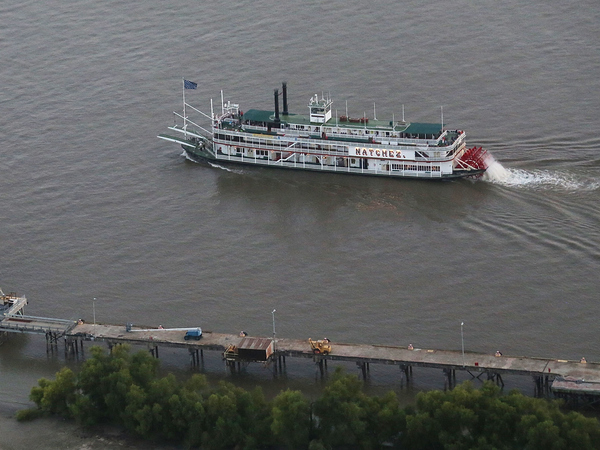Mississippi River basin gets a grade of D+
Go Deeper.
Create an account or log in to save stories.
Like this?
Thanks for liking this story! We have added it to a list of your favorite stories.

The Mississippi River basin has gotten a report card from a group that monitors watershed health and economic impact — and the grade is D+.
The organization, America's Watershed Initiative, cited the poor condition of infrastructure such as locks and dams, and a lack of funding that could lead to water security issues.
The Mississippi River watershed is the fourth-largest in the world, according to the group. It is made up of five river basins that flow across 31 states. It falls short in its goal of serving as the nation's most valuable water passage, according to the report, which notes that the watershed transports $54 billion of agricultural products annually.
The report found that:
Turn Up Your Support
MPR News helps you turn down the noise and build shared understanding. Turn up your support for this public resource and keep trusted journalism accessible to all.
"Critical components for locks and dams are in relatively poor condition across the Watershed, and a dangerous lack of funding for infrastructure maintenance means that multiple failures may be imminent. River transportation currently functions with some delays, but as these systems continue to deteriorate, significant failures could be expected which would result in severe, economic, public safety and water security problems."
Maria Altman of St. Louis Public Radio spoke with Heath Kelsey of the University of Maryland's Center for Environmental Science, who was the project lead for the report.
Kelsey says up to 97 percent of locks and dams are in good condition, "but it's that 2 or 3 percent in failing or near-failing condition that is of concern. That 2 or 3 percent is a really big deal."
One failed lock, he tells Altman, can tie up the rest of the system.
America's Watershed Initiative arrived at the D+ after measuring six main categories: ecosystems, water supply, transportation, economy, recreation, and flood control and risk reduction.
The river basin received moderate marks for providing "robust nature based recreational activities," but the group said "much more needs to be done to support current and emerging recreational opportunities through effective management of natural resources that support recreation."
Sustaining and increasing the basin's capacity through rehabilitation, repairs and innovation, it says, is "necessary in order to maintain a competitive economy."
The website for America's Watershed Initiative says the organization brings together hundreds of business, science and government organizations to identify and recommend areas of improvement to water quality, safety and health of America's heartland rivers — including the Mississippi River and the more than 250 rivers that eventually flow into it. Copyright 2019 NPR. To see more, visit https://www.npr.org.


